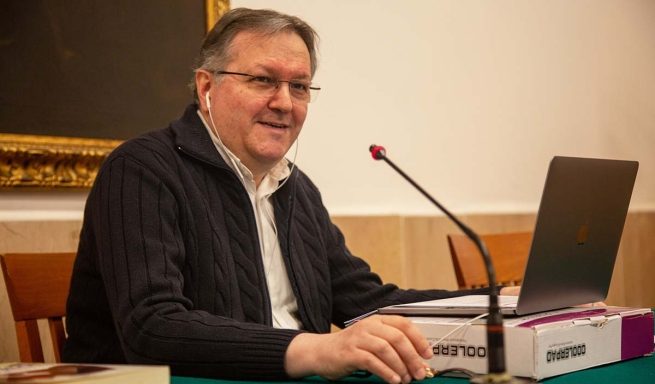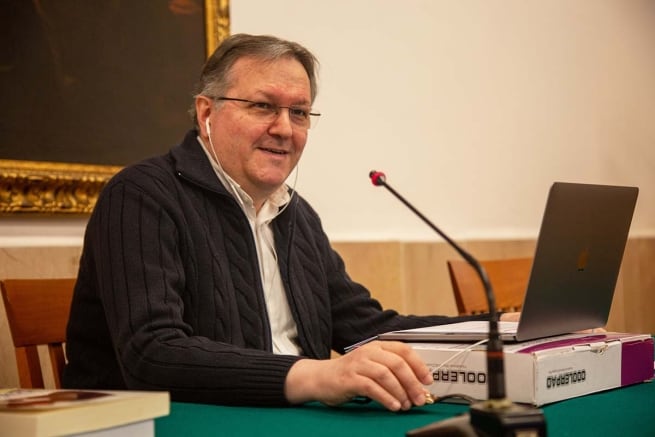(ANS – Rome) – The VIII General Assembly of Salesian Institutions of Higher Education (IUS) is being held these days (January 24-28) at Salesian Headquarters in Rome. On the sidelines of the assembly, we asked a few questions to the Councilor for Youth Ministry, Fr Miguel Angel García Morcuende, to examine the value and prospects of the IUS for the Congregation.
What role do the IUS play in the Congregation’s youth ministry?
Our Institutions of Higher Studies were born with different motivations than at the beginning; if initially there was the concern to offer and guarantee a higher level of education to Salesian religious, another passage matured later on: higher education as a natural result of the growth and evolution of Salesian middle and high schools, known for their academic and educational excellence. Naturally, they also stem from the need to continue to accompany young people in the period of their lives when they are called upon to make fundamental decisions for their future and to offer an opportunity for access to university to those who come from working-class backgrounds and from the world of work.
Taken together they reflect the conviction that, through our centers of higher learning, we are capable of offering society a cultural proposal of quality, enriching it with people who are rich in humanity, competent professionals, active citizens. Therefore, taking on the scientific and academic tradition proper to the university structure, they offer at this educational level the values and spirit proper to the Salesian educational and charismatic heritage, thus configuring themselves as institutions with a specific identity, both within the Church and within society.
In the last 20 years there has been a strong increase in the number of IUS; what is the outlook now?
In response to the new contexts we face, we must always discern carefully about the prospects for our downsizing. The mission is not limited to our works: that is, we need to understand whether our charismatic identity is guaranteed in the reconversion of the Provinces. This reorganization or extension of higher education moves on the basis of certain conditions: in the first place, charismatic density and the Salesian educational method, indicated above all in Don Bosco’s Preventive System. Alongside this, the quality of presence and attention to young people who come from the working classes. Prepare them for the future by making our institutions more like “flight schools” than “nests.” Third, an academic community with a clear Salesian identity must be nurtured. Last but not least, there is always the challenge of sustainability of human and economic resources. In a nutshell, the province must promote identification with and commitment to the Christianly and Salesian-oriented Institutional Project and to the educational-pastoral intentionality.
What is it that makes an institution of higher education an authentic IUS? Where does the “Salesian essence” reside?
Given the plurality of the different cultural and religious contexts of our universities, I would like to offer the framework from which the Congregation could think of animating and promoting the Salesian educational-pastoral proposal. By way of illustration, I would like to indicate some criteria:
• the identity criterion, that is, the evangelizing and Salesian perspective, based on love and freedom as fundamental evangelical principles, which does not renounce proposing a process of personalization of faith in the Salesian style;
• the educational criterion of integrity, which takes care of the osmosis between the three levels of accompaniment: broad educational environment, groups, and personal accompaniment;
• the criterion of exemplary ethical behavior;
• the vocational criterion, which helps to recognize, interpret and choose what the students feel called to;
• the community approach in the “family spirit,” which inspires personal relationships and pedagogy;
• the criteria of interculturality and religious pluralism, which nurtures the “culture of encounter” with all;
• the criterion of socio-political commitment, inherent in Christian commitment;
• and the criterion of networking, aware of the need for synergies and connections with all those involved in educational processes.
Source: ANS -“Agenzia iNfo Salesiana”


